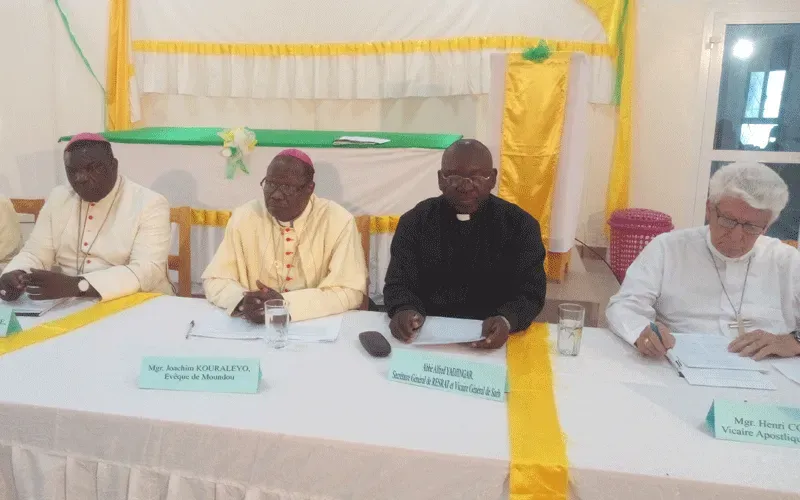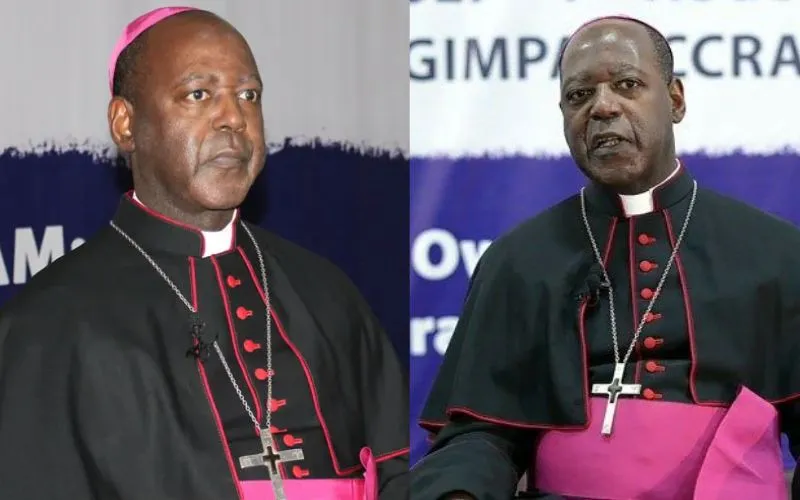“When you call a meeting, at the end of the meeting you have to give them some little token as sign of motivation,” said Fr. Hathouna. “If not, they won’t show up for the next meeting.”
Now that they have nothing to offer them, some of the faithful are reluctant to assist in meetings when they are called, and many don’t turn up. “There is still much to do in terms of evangelization to change the mentality, even during youth events,” he said, and added, “They were used to be sponsored by the former bishop who usually hired nice buses, but the new bishop, because he’s without enough means, he can’t continue doing that, so he asked the youths to be content with any car they see available.”
He added that some started suspecting the priests were using the money for themselves. “The former Bishop even asked priests not to ask for contributions from the faithful because the people are poor and don’t have money,” he said.
“The Christians have to understand that the Church has evolved,” Fr. Hathouna continued. “It’s not the affair of the Priest alone but a synergy and the laity are supposed to take an active part in the life of their Church by contributing,” he said.
He also pointed out that Chad is not such a peaceful country as the peace there is fragile. “You don’t know what can happen the next minute, and this atmosphere has made Christians come to Church with weapons such as knifes even when you preach the gospel of peace, love and forgiveness,” he said. “They talk always of peaceful, pacific co-existence but it’s not easy because of the constant conflict between farmers and herders,” said Fr. Hathouna, alluding to the fact that farmers are generally Christians, and the herders are Muslim.
(Story continues below)
Fr. Nyuydze echoed his views. “Muslims are highly favored by the current regime, leading to social, economic and cultural injustice,” he said. “I can say without mincing words that there’s cold war in the pipeline. Sooner or later there will be explosion if nothing is done and done fast,” he said, adding that politically, the people are “hijacked by the regime and its foreign accomplices.”
For this reason, he said Christians now find it difficult to interact with the Zaghawa, Chad’s ethnic Muslim population, and the conflict and tension between the farmers and herders is not forgotten. When the farmers complain, they are simply ignored or exploited.
“The recent massacre in Chad can help you visualize the pastoral challenges at stake that Chad is going through,” Fr. Nyuydze said, referring to when 11 villagers in the southern part of the country were killed by bandits in a region troubled by violence between herders and sedentary farmers. “Most of those massacred were Christians.”
Another issue Fr. Hathouna raised is public service appointments which, he said, are not merit based but more tribal oriented as Muslims win many appointments without much education. He said this is causing resentment, especially among the educated who are from the South. He even said it has come to a point where indigenous priests are thinking of involving themselves in the country’s politics.
But despite all these challenges, Fr. Nyuydze said believers, especially Christians, “have not lost hope, faith and charity, and that is our mission statement.” He outlined that one major pastoral challenge which is a stumbling block is the poor level of education in Chad. He said according to the Bishop of Moundou, all development must pass through valuable and quality education system.
Also another challenge is the believe in sorcery, witchcraft, magic, Freemasonry, and Rosicrucianism which are rampant in Africa and Chad is no exception.
“Nevertheless, through caritas, justice and peace, measures are taken in order not to leave our God-fearing people dumfounded and lost in this valley of tears,” Fr. Nyuydze said. “Last year the bishops of Chad refused to take part in the national dialogue because it was not inclusive and only favored a particular group and religion.”
According to Fr. Hathouna, priests receive help through other means, namely the Pontifical Missionary Societies. Selected projects in a parish can benefit if the organization deems them worthy. These will then benefit the local population — projects such as healthcare, education, and nutrition, especially as Chad constantly suffers from flooding during rainy seasons.
“Priests who have benefactors get additional help but not all priests have benefactors,” noted Fr. Hathouna, adding, “Notwithstanding the work of evangelization, which, as it’s in its primary phase, still has a long way to go, we are building from small Christian communities, giving constant catechesis etc.”
“The Church here doesn’t have a solid foundation compared to other neighboring countries,” he concluded, “and more still needs to be done, especially changing the mentality of the Christians.”








